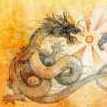-
Posts
483 -
Joined
-
Last visited
Never
Posts posted by Daimashin
-
-
You can't read it directly.
-
You can't read it directly.
-
You can't read it directly.
-
You can't read it directly.
-
You can't read it directly.
-
You can't read it directly.
-
You can't read it directly.
-
You can't read it directly.
-
You can't read it directly.
-
You can't read it directly.
-
You can't read it directly.
-
You can't read it directly.
-
You can't read it directly.
-
You can't read it directly.
-
You can't read it directly.
-
You can't read it directly.
-
You can't read it directly.
-
You can't read it directly.
-
You can't read it directly.
-
You can't read it directly.
-
You can't read it directly.
-
You can't read it directly.
-
You can't read it directly.
-
You can't read it directly.


中国新年就快到了, 你们有什么理想?
in Chinese Lounge | Conversations in Chinese only
Posted